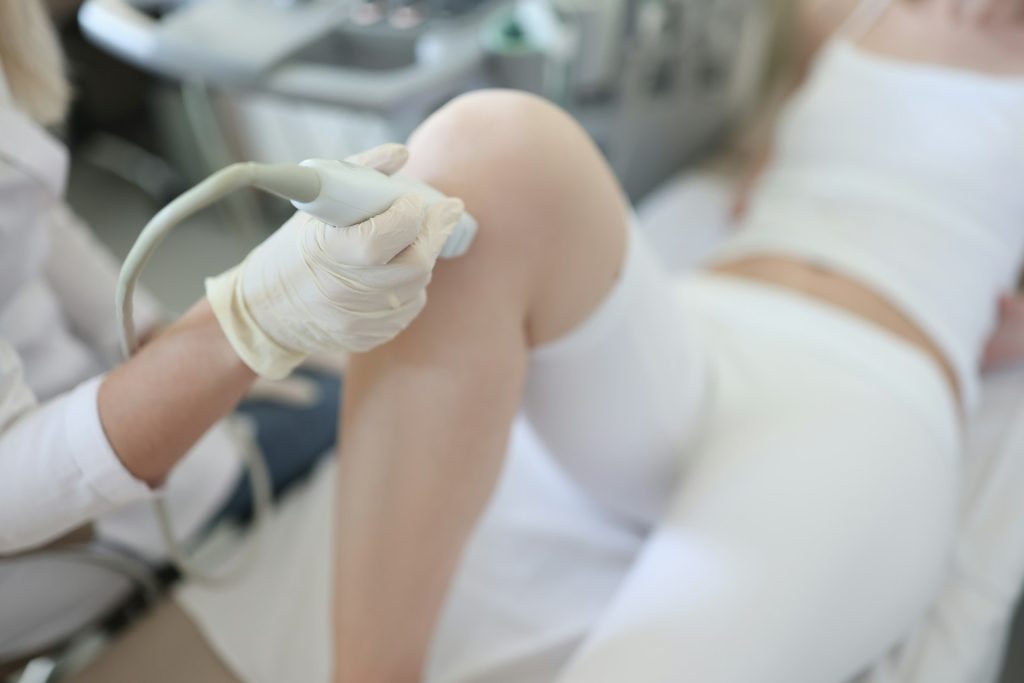If you’re struggling with knee pain due to osteoarthritis, you may be considering hyaluronic acid injections as a treatment option. Medicare does cover knee gel injections when they are deemed medically necessary by your doctor, which can significantly ease your financial burden. Understanding what your coverage includes and the eligibility requirements is essential for making informed health decisions.
At The Modern Medicare Agency, we specialize in helping you navigate your Medicare options, ensuring you receive the benefits you deserve. Our licensed agents work with you one-on-one to identify Medicare packages that suit your specific needs, all without any hidden fees. You don’t have to face these decisions alone; our expertise is here to support you.
With the right information, managing your knee pain can become more manageable, and obtaining coverage for vital treatments like knee gel injections is within reach. Dive into the details and discover how to make the most of your Medicare benefits today.
Medicare Coverage for Gel Knee Injections
When considering gel knee injections under Medicare, it’s essential to understand the eligibility criteria, benefits under Medicare Part B, and how coverage differs between Original Medicare and Medicare Advantage plans.
Eligibility Criteria and Medical Necessity
To qualify for Medicare coverage of gel knee injections, you must meet specific eligibility criteria. These injections are typically prescribed for those with knee osteoarthritis who demonstrate a medical necessity for the treatment.
A healthcare provider must document that conservative treatments, such as physical therapy or pain medications, have not provided adequate relief. Medicare may require that you are experiencing significant pain or limited mobility due to osteoarthritis to justify coverage.
Your medical records should indicate prior treatment attempts and the need for gel injections for effective management of your condition.
Medicare Part B Benefits
If you have Original Medicare, gel knee injections may be covered under Medicare Part B. This portion of Medicare addresses outpatient services, making it the primary coverage route for these types of injections.
Medicare Part B covers gel knee injections every six months, but only for eligible patients who satisfy the medical requirements. It’s crucial to ensure that the injections are administered by a physician or qualified healthcare provider participating in Medicare.
You may still encounter some out-of-pocket costs, such as deductibles and coinsurance, so understanding your financial responsibilities is important.
Original Medicare and Medicare Advantage Plans
Both Original Medicare and Medicare Advantage plans can provide coverage for gel knee injections, but the specifics may vary. Original Medicare includes Part A and Part B, ensuring coverage for medically necessary treatments.
Conversely, Medicare Advantage plans, offered by private insurers, might include additional benefits beyond the core Medicare coverage. Some plans may have different criteria or costs associated with gel injections, so it’s vital to read the terms of your specific plan.
Choosing the right plan can make a significant difference in your out-of-pocket costs. At The Modern Medicare Agency, our licensed agents can assist you in finding the best Medicare package tailored to your needs without hidden fees. You can discuss your options one-on-one to ensure you receive the coverage you deserve.
Understanding Gel Knee Injections
Gel knee injections, primarily involving hyaluronic acid, are utilized to address the symptoms of knee osteoarthritis. These injections aim to enhance joint lubrication and may alleviate pain and inflammation, contributing to improved mobility.
Hyaluronic Acid and Its Role
Hyaluronic acid is a naturally occurring substance found in synovial fluid, which lubricates joints and maintains their health. In the context of knee osteoarthritis, the concentration of hyaluronic acid may diminish, leading to increased friction, swelling, and discomfort.
When injected into the knee joint, hyaluronic acid acts as a lubricant, potentially reducing pain and improving the joint’s functionality. This viscosupplementation therapy offers patients an alternative treatment when traditional methods, such as pain medication or physical therapy, do not provide adequate relief.
Patients often experience varying degrees of improvement, making it essential to consult a healthcare provider to evaluate the suitability of this treatment based on individual needs.
Knee Osteoarthritis and Viscosupplementation
Knee osteoarthritis is a degenerative joint disease characterized by the breakdown of cartilage and changes in the joints. It often results in pain, swelling, stiffness, and a reduced range of motion for those affected. Viscosupplementation with hyaluronic acid injections serves as a therapeutic option for managing these symptoms.
This procedure involves the injection of a gel-like substance directly into the knee joint space. By mimicking the natural synovial fluid, hyaluronic acid may enhance joint lubrication and smooth movement. Research suggests that patients receiving these injections may experience a decrease in pain levels and an increase in daily activity.
Regular follow-up with your healthcare provider is advisable to monitor the response to treatment and adjust plans as necessary.
Efficacy and Range of Motion Improvement
The efficacy of gel knee injections can vary among patients, but many report noticeable improvements in pain and range of motion. Studies indicate that viscosupplementation can lead to a reduction in knee pain intensity, thereby enabling individuals to engage in daily activities with greater ease.
Patients might also experience improved range of motion due to reduced swelling and enhanced joint function. It is essential to understand that while these injections can provide temporary relief, they may not stop the progression of osteoarthritis.
Discussing treatment options with a knowledgeable provider can help determine the most effective approach for your specific situation. For personalized Medicare insurance guidance, consider services from The Modern Medicare Agency. Our licensed agents work with you to identify Medicare packages tailored to your needs, ensuring a straightforward and supportive experience.
Exploring Treatment and Financial Considerations
When considering knee gel injections, it’s important to understand the associated costs and your insurance coverage. Financial implications, including out-of-pocket expenses and potential insurance gaps, can significantly influence your treatment options.
Cost of Knee Gel Injections and Out-of-Pocket Expenses
The cost of knee gel injections can vary widely based on factors like geographic location and the healthcare provider’s fees. Generally, the price ranges from $1,000 to $2,000 per injection cycle. Medicare typically covers these injections under Part B, but you may still face out-of-pocket costs such as deductibles and coinsurance.
For example, if the total cost is $1,500 and you have met your deductible, your coinsurance might be 20%, resulting in an out-of-pocket expense of $300. It’s vital to get a clear estimate from your healthcare provider and check your Medicare plan for specific coverage details.
Medigap and Coinsurance
If you’re enrolled in a Medigap Plan, it may help cover some of the out-of-pocket costs associated with knee gel injections. Medigap policies can reduce your coinsurance or deductible amounts, easing your financial burden.
For example, if your original Medicare plan covers 80%, a Medigap Plan C or F could potentially cover the remaining 20%. You should review the benefits of various Medigap options available to you.
Additionally, consider consulting with an agent at The Modern Medicare Agency. They can guide you in identifying which Medigap plan fits your health needs while avoiding unnecessary fees.
Affordable Healthcare and Injection Cost
Finding affordable healthcare solutions can be a challenge. If knee gel injections are not fully covered by Medicare, there are several options available to lower your costs.
Some providers offer payment plans or financial assistance programs to help manage the price of injections. Investigate local clinics that may provide services at a lower cost compared to larger hospitals.
It’s beneficial to discuss your options with a healthcare professional. They can provide insights into centers that specialize in affordable treatments. The Modern Medicare Agency can also assist in navigating these options and ensuring you find the best coverage for your needs.
Alternative Therapies and Preventive Measures
Exploring alternative therapies and preventive measures can significantly enhance your knee health and overall well-being. Approaches like physical therapy, nutrition adjustments, and various injection therapies can provide relief and improve functionality.
Physical Therapy and Exercise
Physical therapy focuses on improving mobility and flexibility through tailored exercise programs. A licensed physical therapist will work with you to create an individualized regimen that strengthens the muscles around your knee joint.
Exercises may include low-impact activities such as swimming, cycling, or specific strength training to help alleviate pain. Engaging in regular physical activity not only aids in rehabilitation but also prevents further deterioration of joint health. Incorporating stretching routines improves flexibility, while strengthening exercises bolster knee stability.
Regular follow-up visits ensure your progress is monitored, making adjustments as needed to optimize outcomes. This proactive approach can minimize reliance on medication and invasive treatments.
Nutritional Changes and Assistive Devices
Making nutritional changes can play a crucial role in managing knee pain. A balanced diet rich in anti-inflammatory foods, like fruits, vegetables, whole grains, and healthy fats, can help reduce joint inflammation. Omega-3 fatty acids found in fish are particularly beneficial for joint health.
In addition to diet, using assistive devices such as braces or walkers can provide support and reduce strain on your knees during daily activities. These tools enable you to maintain mobility while protecting your joints from further damage. Consulting with healthcare professionals can help you find the right modifications tailored to your needs.
Corticosteroid Injections and PRP Therapy
Corticosteroid injections can offer temporary relief from inflammation and pain associated with knee conditions. These injections target the specific area and can provide rapid relief to facilitate physical therapy and daily activities.
Platelet-Rich Plasma (PRP) therapy is another innovative option. This method involves extracting your blood, processing it to concentrate the platelets, and then injecting it back into the knee joint. PRP is known to promote healing and reduce inflammation.
Both options can enhance your treatment plan, leading to better outcomes. Effective pain management allows you to maintain an active lifestyle while exploring other therapies and preventive measures.
For guidance navigating your Medicare options related to treatments, consider working with The Modern Medicare Agency. Our licensed agents are here to support you in finding the right insurance solutions without hidden fees, ensuring personalized service tailored to your health care needs.
Next Steps After Treatment
After receiving gel knee injections, it’s important to focus on monitoring your recovery and assessing your options moving forward. You will want to evaluate your pain relief and quality of life, consider the possibility of knee replacement surgery, and maintain regular follow-up care with your healthcare provider.
Monitoring Pain Relief and Quality of Life
Following your treatment, keep a detailed record of your pain levels. Note any changes in mobility and daily activities. Use a simple scale from 1 to 10, where 1 is minimal pain and 10 is severe pain, to quantify your experience.
Regularly assess how the injections impact your quality of life. Are you returning to activities you enjoy? Are you moving more comfortably? Observing these changes can help you and your healthcare provider make informed decisions about future treatments or interventions.
Considering Knee Replacement Surgery
If pain persists despite gel injections, it may be time to discuss knee replacement surgery with your healthcare provider. This surgery can significantly improve mobility and alleviate chronic pain.
Consider the timing and type of knee replacement. There are partial and total options available depending on the extent of joint damage. Weigh the risks versus the benefits. Your healthcare provider can guide you through this decision based on your specific condition and overall health.
Follow-Up Care with Healthcare Provider
Consistent follow-up with your healthcare provider is crucial after treatment. Scheduling regular appointments can help monitor your recovery and address any concerns early on.
During these visits, discuss your pain management strategies and any new symptoms. Your provider may suggest additional therapies to enhance recovery. Work closely with them to adjust your treatment plan as needed. This collaboration will ensure you receive the best possible care tailored to your needs.
If you need assistance navigating Medicare options related to your treatment, The Modern Medicare Agency is here to help. Our licensed agents are real people you can speak to one-on-one, identifying packages that align with your specifications without extra fees.






